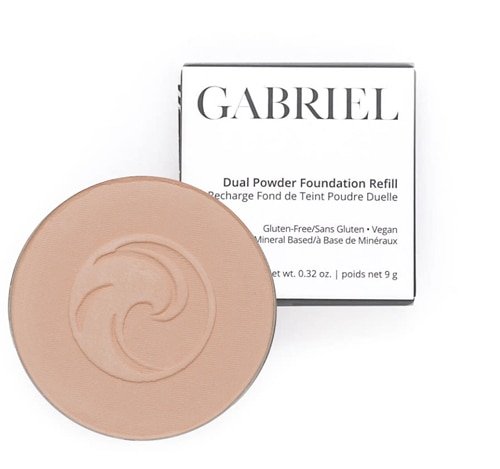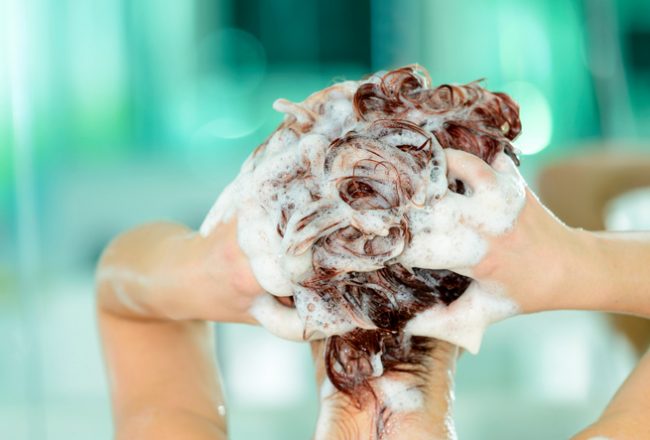Beauty is more than skin deep. In the U.S., more and more women are going below the surface in search of natural products for skin care, hair care and similar purposes.
A 2017 survey taken for Kari Gran, a skin care company, found that 61 percent of American women are examining ingredient labels on beauty products before buying them, up from 55 percent a year earlier.
Daniel Fabricant, president and CEO of the Natural Products Association, a trade group representing makers and retailers of natural cosmetics, beauty products and other natural goods, says we should see even more attention being paid to the ingredients in natural shampoo, makeup and the like.
Over the next several years, Fabricant says, federal regulators and lawmakers are expected to step up efforts to define the term “natural,” including how it’s applied to ingredients used in beauty products. Consumer demand for this move is “really through the roof,” he says.
“It’s not a bad thing,” Fabricant says of the heightened scrutiny. “It’s a good thing for consumers and for consumer confidence.”
The scrutiny of ingredients in natural beauty products comes amid increased examination of ingredients in beauty products that are not labeled “natural.”
So, which ingredients in traditional beauty products are most concerning to women?
The Kari Gran survey shows sulfates are the No. 1 ingredient that women say they avoid the most when buying beauty products. Thirty-percent say they wouldn’t buy a product if sulfates appeared on the label. Sulfates are foaming agents that show up in products like shampoo and body wash.
According to Naturally Curly, a website dedicated to people with curly hair, many products labeled “sulfate-free” actually contain sulfates, but not the two harshest kinds: sodium laureth sulfate (SLS) and ammonium lauryl sulfate (ALS).
Courtesy of Naturally Curly, here are some key facts about sulfates:
- There’s no evidence to back claims that sulfates cause cancer.
- SLS and ALS do cause damage and dryness to hair. However, things like water, sunlight and combing also can harm your hair.
- Sulfates might irritate your scalp, but other shampoo ingredients can cause irritation as well.
- Sulfates do cause hair to become frizzy.
Here’s Naturally Curly’s verdict on sulfates: “Are sulfates harmful, health-wise? No. Can they cause a little drama on your scalp, and dry out your hair? Absolutely. Should you banish them from your regimen? That’s up to you.”
Sulfates aren’t the only ingredients in beauty products that worry women. Below are the percentages of women in the Kari Gran survey who indicated they wouldn’t buy products with the following ingredients.
Parabens (23 percent)
Parabens are commonly used as bacteria-fighting preservatives in products like makeup, moisturizers and hair care products, according to the U.S. Food and Drug Administration (FDA).
The FDA says there’s no evidence of parabens endangering our health. But the nonprofit Campaign for Safe Cosmetics claims “parabens are known to disrupt hormone function, an effect that is linked to increased risk of breast cancer and reproductive toxicity.”
Synthetic fragrance (18 percent)
The Campaign for Safe Cosmetics commissioned independent lab tests that detected 38 “secret” chemicals in 17 leading fragrances, according to Scientific American magazine. Some of the chemicals are made from petroleum, and some have been linked to allergies and hormone disruption.
What’s most troubling to groups like the Campaign for Safe Cosmetics is that consumers don’t know which chemicals are in a bottle of perfume or cologne because manufacturers aren’t required to divulge that information, Scientific American says.
Oxybenzone (14 percent)
Oxybenzone is a key ingredient in chemical sunscreens. Opinions are divided on whether it’s unsafe.
Some organizations like the Environmental Working Group raise concerns about oxybenzone’s ability to penetrate the skin and potentially trigger hormone-like activity, according to WebMD.
However, the American Academy of Dermatologists, other medical organizations and many doctors recommend sunscreens containing oxybenzone and insist there’s no health risk from the chemical, WedMD says.
PEG compounds (12 percent)
Polyethylene glycols (PEGs) are petroleum-based compounds that are widely used in cosmetics as thickeners, solvents, softeners and moisture carriers, according to the David Suzuki Foundation.
Potential health hazards linked to PEGs include cancer, allergies, reproductive problems and developmental problems, according to the Environmental Working Group. However, the group classifies the overall hazards of PEGs as “low.”
Mineral oil (11 percent)
An article in Self magazine knocks down pretty much every myth about the supposed dangers of mineral oil, such as premature aging. “Mineral oil is an effective, safe and inexpensive moisturizing ingredient,” the magazine says.
Critics, however, cite research that they say suggests mineral oil has contaminants that could affect our health. The critics also complain that the health effects of mineral oil haven’t been studied fully enough to clear up their concerns.
Nanoparticles (11 percent)
Uncertainty hangs over nanoparticles in personal care products like sunscreen, foundation and concealer. In large part, that’s because manufacturers don’t have to disclose the qualities of the particles used in sunscreens and other products, according to the Environmental Working Group.
Friends of the Earth Australia says the long-term health risks of nanoparticles “remain poorly understood,” yet early evidence indicates nanoparticles might cause lung damage, DNA damage and other health problems.
Retinyl palmitate (10 percent)
Research suggests retinyl palmitate, a form of vitamin A found in many sunscreen products, might speed up the development of skin tumors and lesions when applied to the skin in sunlight, according to the Environmental Working Group. Meanwhile, officials in Germany and Norway have warned that retinyl palmitate and other vitamin A ingredients in cosmetics could contribute to vitamin A toxicity, the group says.
“The evidence for these effects, while not definitive, is troubling,” according to the Environmental Working Group.




